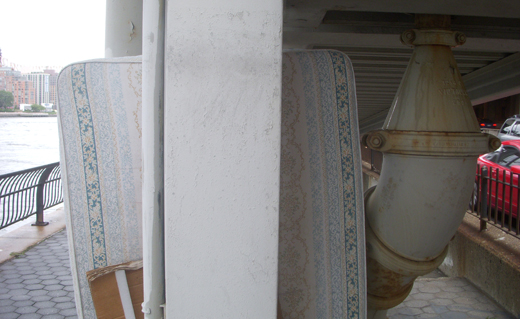Monday Scramble: Wilt

 New at Portico: It’s nothing short of miraculous, to us at least, that the week’s heat and humidity did not impair our productivity. But perhaps the dreadful climate explains why we can’t be bothered to put it any better than that.
¶ It took a while for us to warm to Colson Whitehead’s Sag Harbor, and, when we did, the pleasure of reading the book was somewhat clouded by that sense that the author isn’t yet old enough to do justice to his adolescence. He does capture the black-hole solipsism of the fifteen year-old male — and that’s it. That’s it? A great deal of very rich material, including the struggles of a difficult but committed marriage, goes underdeveloped. Happily, there is no law against returning to harvested fields.
¶ Our initial response to Dave Eggers’s “Max at Sea,” in last week’s New Yorker, was straight agony. Trying to read what turned out to be a children’s story as fiction for adults tied us up in knots. That The New Yorker would ever publish a children’s story as “fiction” was a conclusion that we should never have trusted our own intelligence to reach. The experience prompted a good deal of thought about the importance of “getting it,” as though literature were primarily a puzzle to be decoded. This was a case of not “getting” something that wasn’t worth the effort.
¶ More in the spirit of a hot August week, we went to see The Goods: Live Hard, Sell Hard, a joyously terrible movie. We  hope that the movie is not a really big hit, because that will only encourage a raft of miserably inferior imitations. On the home theatre front, we watched Fred and Ginger in Follow the Fleet without interruption. We even took notes, but they turned out to be useless, at least as copy.
¶ As for this week’s Book Review review, are we the only one to find Geoffrey Grandfield’s witty drawing more than a little unpleasant, given the context? It’s nothing less than perverse of the Times to fuss over avoiding everyday demotic in print while publishing such unseemly illustrations.
